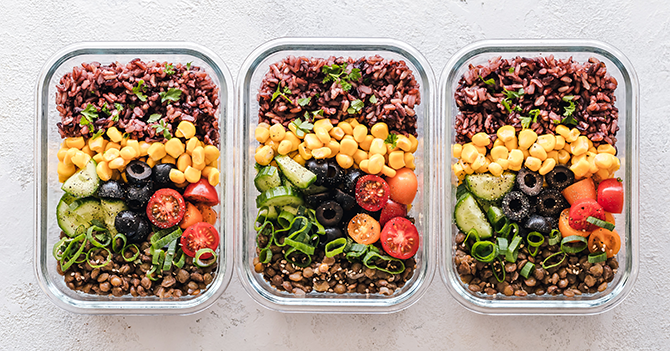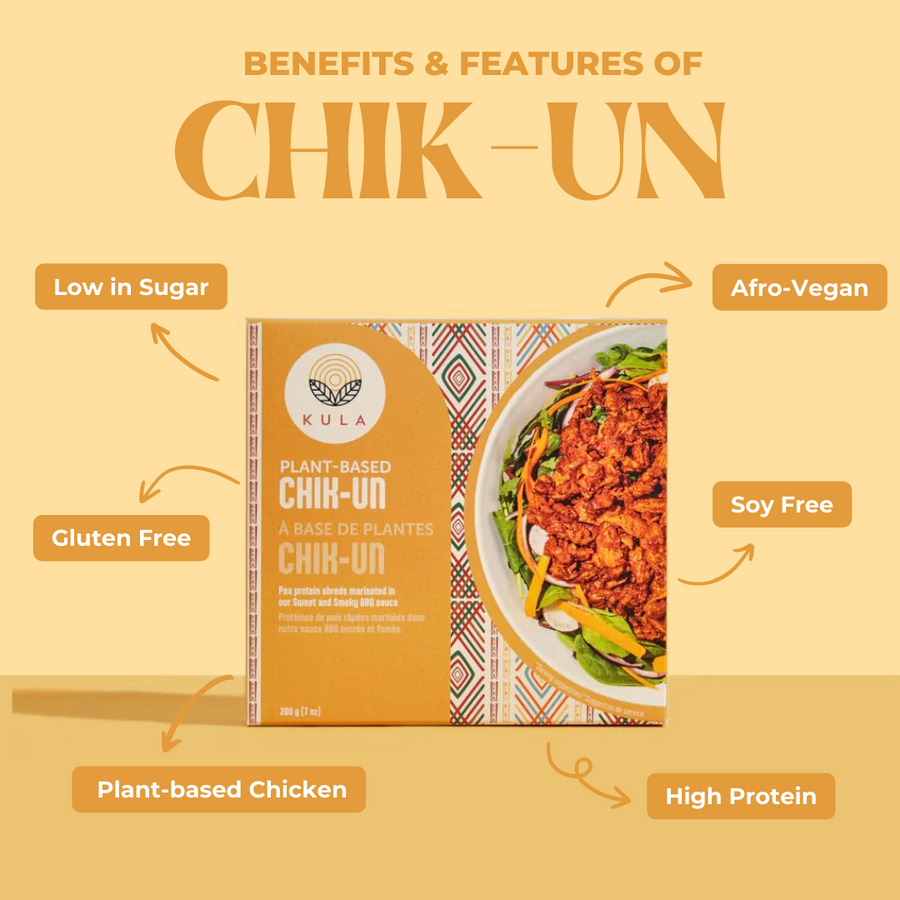Why Sugar Free Sauces Are a Game-Changer for Your Plant-Based Pantry
Why Sugar Free Sauces Are a Game-Changer for Your Plant-Based Pantry
Blog Article
Everything About Healthy And Balanced Food: Advantages of Checking Out Plant Based Options
The conversation surrounding plant-based diets has gained significant focus in recent times. Numerous individuals are checking out the potential health and wellness benefits, nutritional benefits, and environmental influences connected with these dietary choices. As people end up being extra knowledgeable about their food's influence on well-being and sustainability, inquiries develop concerning the usefulness of adopting such a way of living. What details changes can one expect, and just how might these choices reshape not just individual wellness yet also the earth's future?
Understanding Plant-Based Diet Regimens
Although lots of people link plant-based diet plans generally with vegetarianism or veganism, these diets can include a variety of eating patterns that prioritize entire, minimally processed plant foods. Such diets frequently include fruits, vegetables, entire grains, seeds, nuts, and vegetables, while restricting or getting rid of pet products. This adaptability permits people to tailor their dietary selections according to personal preferences and dietary demands. Some might adopt a largely plant-based diet while still sometimes consuming meat or milk, commonly referred to as a flexitarian technique. The focus remains on integrating more plant foods, which can result in a varied range of dishes and flavors. Recognizing these various interpretations of plant-based eating is important for valuing its accessibility and allure in contemporary food culture.
Wellness Perks of Plant-Based Foods
The wellness benefits of plant-based foods are substantial, using a nutrient thickness benefit that sustains general well-being. Research shows that these foods can improve heart wellness and play a crucial role in effective weight monitoring. By integrating a lot more plant-based choices, people might enhance their dietary choices and advertise lasting health and wellness.
Nutrient Density Advantage
Nutrient density plays a crucial function in the health benefits of plant-based foods, making them an engaging option for those seeking a well balanced diet regimen. Plant-based foods, such as fruits, veggies, legumes, nuts, and whole grains, are often rich in vital vitamins, minerals, and anti-oxidants while being lower in calories. This high nutrient thickness allows people to take in fewer calories while still fulfilling their dietary requirements. In addition, these foods are packed with dietary fiber, advertising digestion health and helping in weight monitoring. By integrating nutrient-dense plant-based options, consumers can enhance their overall health, sustain their body immune systems, and minimize the danger of chronic diseases. Inevitably, the nutrient thickness of plant-based foods emphasizes their value in a health-conscious way of living.
Heart Health Improvement

Weight Management Assistance
In addition to promoting heart health and wellness, a plant-based diet regimen can substantially aid in weight management. This dietary technique emphasizes entire foods such as fruits, veggies, vegetables, nuts, and whole grains, which are generally lower in calories and higher in fiber compared to animal-based products. The high fiber material helps boost satiation, lowering general calorie consumption. Plant-based diet regimens are frequently rich in essential nutrients while reduced in unhealthy fats, making it much easier to keep a healthy weight. Study indicates that individuals that adopt a plant-based lifestyle have a tendency to have lower body mass indexes (BMIs) and experience even more successful weight loss contrasted to those that take in meat-heavy diet plans. Accepting plant-based options is a strategic selection for efficient weight monitoring.
Nutritional Value of Plant-Based Active Ingredients
Plant-based ingredients are abundant in vital nutrients, offering a varied variety of vitamins, minerals, and anti-oxidants that contribute to overall health and wellness. A contrast of protein resources reveals that while pet items are often deemed remarkable, several plant-based alternatives supply appropriate healthy protein and various other useful compounds. Understanding the dietary value of these ingredients can aid individuals make educated dietary options.
Necessary Nutrients in Plants
Nutrient-rich active ingredients found in plants offer a varied variety of crucial vitamins and minerals that add significantly to general wellness. These ingredients are rich in vitamins A, C, and K, which support immune function, vision, and blood clot, respectively. In enhancement, plants offer important minerals such as magnesium, potassium, and calcium, critical for heart wellness, muscle function, and bone strength. The presence of fiber in plant-based foods aids digestion and promotes a healthy intestine microbiome. Antioxidants, discovered generously in veggies and fruits, help combat oxidative anxiety and decrease inflammation. Several plant foods are low in calories yet high in nutrients, making them an exceptional selection for those looking for to preserve a healthy and balanced weight while ensuring excellent nutrient intake.

Comparing Protein Resources
Protein sources vary considerably in their nutritional profiles, with plant-based components offering unique advantages. Unlike animal healthy proteins, which frequently have hydrogenated fats and cholesterol, plant proteins often tend to be lower in these undesirable elements. Legumes, nuts, seeds, and entire grains are abundant in essential amino acids, fiber, vitamins, and minerals. Lentils offer high healthy protein material along with substantial iron and folate, while quinoa is a total healthy protein, supplying all nine vital amino acids. Furthermore, plant-based healthy proteins are usually accompanied by antioxidants and phytochemicals that sustain general health and wellness. The shift to plant-based protein sources not just enhances nutritional consumption but likewise aligns with lasting nutritional practices, reducing environmental go to this site impact and promoting long-term wellness advantages.
Environmental Impact of Plant-Based Eating
As awareness of environment modification grows, lots of individuals are discovering sustainable dietary selections that can considerably lessen their ecological footprint. Plant-based eating has become a considerable contributor to reducing greenhouse gas emissions, which are mainly connected with animals manufacturing. The cultivation of fruits, grains, beans, and vegetables normally requires fewer sources, such as water and land, contrasted to animal farming. Additionally, plant-based diet plans can bring about decreased logging, as less land is needed for grazing livestock or growing pet feed. By changing in the direction of plant-based options, consumers can sustain biodiversity and advertise much healthier ecological communities. In general, welcoming plant-based eating not just advantages personal health yet also represents a vital step towards ecological sustainability and preservation efforts.
Overcoming Common Misconceptions
While lots of people acknowledge the advantages of a plant-based diet plan, a number of misconceptions typically prevent them from totally embracing this lifestyle. An usual belief is that plant-based diets do not have sufficient protein; nonetheless, countless plant resources, such as vegetables, nuts, and tofu, give ample healthy protein. Furthermore, some assume that this diet is expensive, when as a matter of fact, staples like beans, rice, and seasonal vegetables can be quite affordable. An additional mistaken belief is that plant-based consuming is excessively limiting, whereas it in fact provides a varied array of flavors and foods. Several fret that a plant-based diet plan might lead to deficiencies, yet with correct planning, people can get all essential nutrients, including vitamins and minerals, while appreciating a wide selection of delicious dishes. Broad Tips for Transitioning to a Plant-Based Way of living
Making the shift to a plant-based way of living can be an enriching experience, though it frequently calls for some advice to navigate the initial modifications. First, individuals are encouraged to begin gradually, integrating more fruits, veggies, beans, and entire grains into their meals while decreasing meat and dairy intake. Dish planning is important; preparing an once a week menu can help alleviate the modification and stop last-minute harmful choices. Exploring cooking methods and new recipes can also preserve and boost the experience excitement about plant-based eating. Furthermore, signing up with support groups or neighborhoods can give motivation and share important tips. Staying educated about nourishment warranties balanced dishes, stopping deficiencies while fostering a healthy and balanced, rewarding plant-based way of life.

Delicious Plant-Based Dish Ideas
Exploring tasty plant-based meal ideas can motivate individuals to welcome a more nourishing diet. One prominent alternative is a passionate quinoa salad, featuring cherry tomatoes, cucumber, and a spicy lemon-tahini dressing. An additional fave is a full-flavored lentil stew, packed with carrots, celery, and fragrant herbs, perfect for a comforting dinner. For breakfast, over night oats made with almond milk, chia seeds, and topped with fresh berries provide a healthy beginning to the day. In addition, a dynamic veggie stir-fry with tofu and a selection of vivid veggies can be a fast yet pleasing meal. Ultimately, velvety avocado toast on whole-grain bread, sprayed with spices and seeds, supplies an easy yet savory snack. These dishes display the selection and splendor of plant-based consuming.

Regularly Asked Concerns
Can a Plant-Based Diet Offer Sufficient Protein?
The inquiry of whether a plant-based diet can give enough healthy protein is typical. Many sources, including vegetables, nuts, seeds, and whole grains, can satisfy healthy protein needs efficiently, supporting a balanced and healthy diet plan for individuals.
Are Plant-Based Diets Appropriate for Kid?
The viability of plant-based diet regimens for youngsters relies on mindful preparation. Adequate nutrients need to be ensured, consisting of vitamins, proteins, and minerals. With correct support, such diet regimens can sustain healthy growth and development in kids.
How Do I Eat in restaurants on a Plant-Based Diet plan?
Eating in restaurants on a plant-based diet regimen entails looking for dining establishments with diverse food selections, requesting for alterations, and exploring vegan-friendly options. Preparation ahead and interacting nutritional preferences can enhance the eating experience while keeping dietary options.
What Prevail Irritants in Plant-Based Foods?
Common irritants in plant-based foods consist of soy, gluten, nuts, and seeds - Plant Based Chicken. People complying with a plant-based diet plan must understand these irritants and review labels very carefully to prevent unfavorable reactions and assure safe intake
Can Plant-Based Diets Aid With Weight Management?
Research suggests that taking on a plant-based diet may assist in weight management as a result of its typically reduced calorie thickness and higher fiber material. This combination can enhance satiety, assisting individuals manage their caloric intake efficiently. Many people link plant-based diets mainly with vegetarianism or veganism, these diets can incorporate a broad variety of eating patterns view that focus on entire, minimally refined plant foods. Nutrient thickness plays a vital role in the health and wellness advantages of plant-based foods, making them a compelling informative post choice for those looking for a balanced diet regimen. Plant-based diet plans have actually been revealed to markedly enhance heart health, as they typically include elements that support cardiovascular feature. In enhancement to promoting heart health, a plant-based diet regimen can considerably aid in weight administration. An usual belief is that plant-based diets do not have adequate healthy protein; nevertheless, many plant resources, such as beans, nuts, and tofu, supply sufficient protein.
Report this page